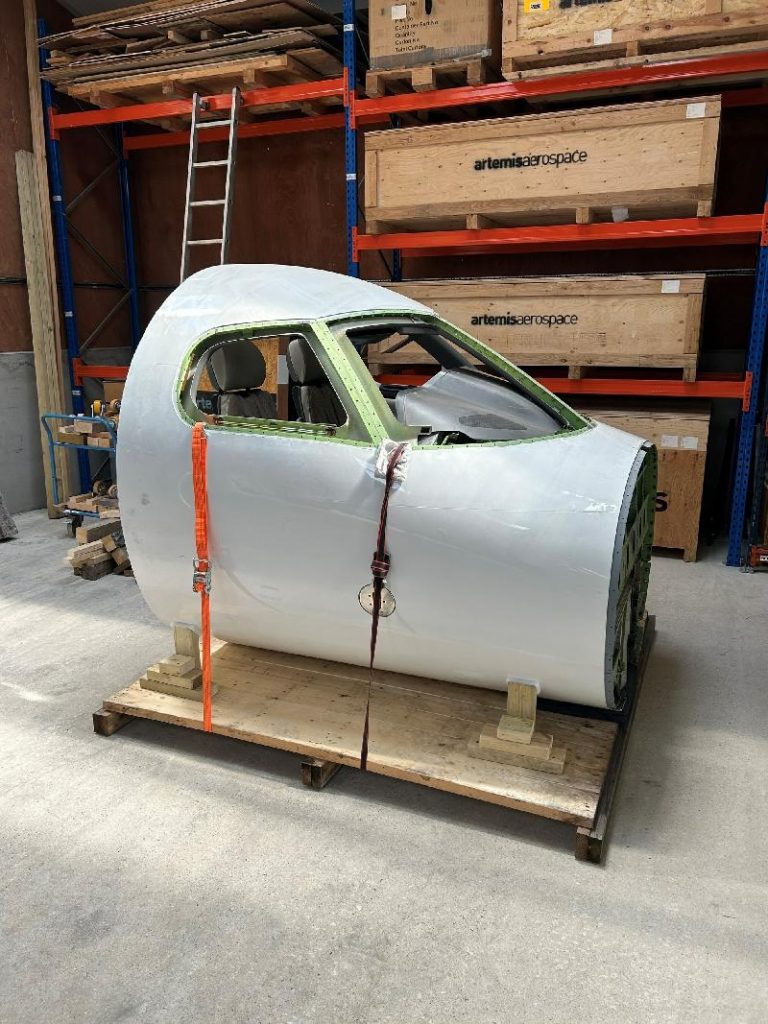Keeping up with the rising demand for business jet pilots will be a huge task over the next few years and the supply of suitable components for the manufacture of training devices will be key in keeping on top of that challenge.
The aviation industry has witnessed a significant surge in private aviation for both business and leisure purposes in recent years. As the demand for private aircraft grows, so does the need for pilots trained specifically to operate these aircraft. However, training pilots to fly different types of private jets poses a unique challenge, especially when access to relevant simulators becomes scarce.
Artemis Aerospace, a renowned specialist in component solutions, has recognized this challenge and is at the forefront of creating customized flight simulators to address the issue. Jim Scott, the owner of Artemis Aerospace, sheds light on the emergence of bespoke flight simulators and how his company is leading the way in developing business jet simulators.
Simulators, also known as training devices, replicate aircraft flights by accurately mimicking internal and external factors that affect flying conditions. They enable pilots to train in a controlled environment that simulates various scenarios, including adverse weather conditions, turbulence, and mechanical failures. Simulators are vital tools for pilot training and continuous professional development, providing valuable experience in both visual flight rules (VFR) and instrument flight rules (IFR) scenarios.
The shortage of qualified pilots has been a growing concern, with Boeing predicting a dramatic shortfall worldwide.
To meet the demand, a significant increase in pilot training is necessary. However, the availability of simulators, particularly for private and business aircraft, lags behind that of large commercial aircraft. This has resulted in a potential backlog of training hours for pilots aspiring to operate specific business jet models.
In the face of this challenge, Artemis Aerospace proposes a solution: creating customized business jet simulators when off-the-shelf options are not readily available. Their expertise in global component supplies positions them well to source the necessary parts and equipment for building tailored simulators.
Recently, Artemis Aerospace was approached by a client seeking support in constructing an Embraer Phenom 300 simulator.
The Embraer Phenom 300 series has established itself as the best-selling light jet for eleven consecutive years, with over 700 units in operation worldwide. Known for its speed, range, and advanced safety features like the runway overrun awareness and alerting system (ROAAS), the Phenom 300 demands a high-fidelity simulator for comprehensive training.
Drawing upon their extensive global network of suppliers, Artemis Aerospace secured a cockpit from a decommissioned aircraft and procured primary furnishing, controls, and panels to create an authentic simulator experience that closely mirrors the actual aircraft. The company’s resourcefulness and commitment to delivering on time and within budget have proven instrumental in meeting their customer’s needs.
The development of business jet simulators represents an innovative approach to pilot training and ensures that the demand for highly skilled pilots is met.
With Artemis Aerospace’s expertise and dedication to sourcing the required components, the aviation industry can navigate the evolving landscape of private aviation by offering comprehensive training opportunities for pilots operating various business jet models.
As the demand for business jets continues to rise, the importance of simulators in pilot training cannot be overstated. By addressing the scarcity of suitable training devices through bespoke solutions, Artemis Aerospace contributes to the overall safety and proficiency of pilots in the ever-expanding world of private aviation.


